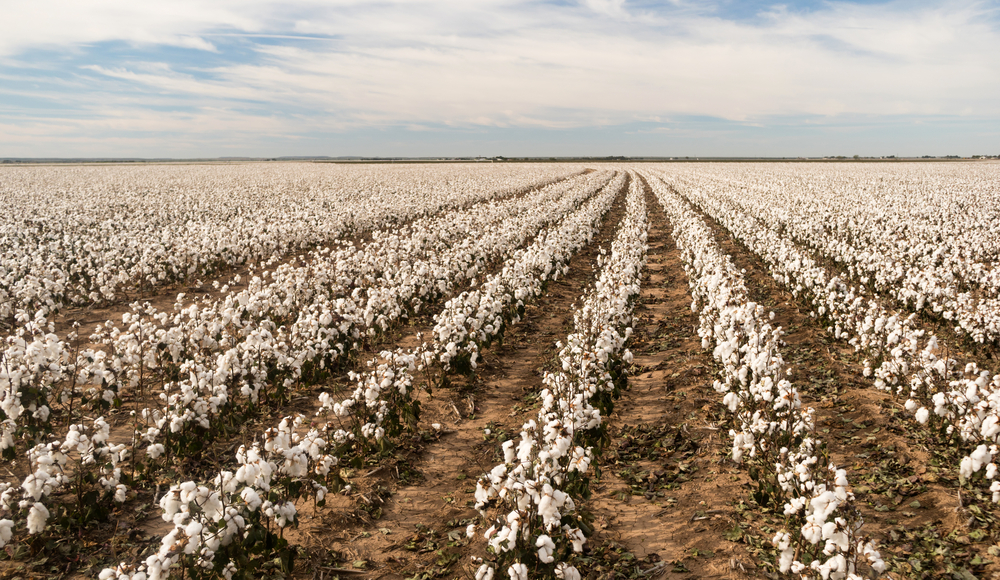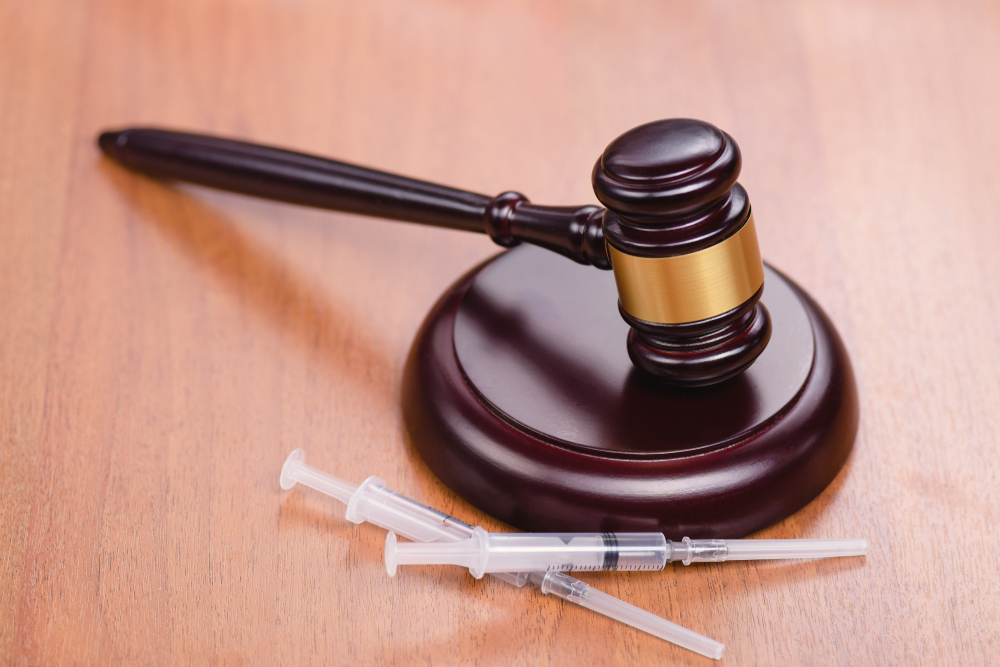More than 127 million acres of Texas land consists of farms and ranches, and no other state has more. The industry contributes about $25 billion to the economy of Texas in a typical year.
An estimated 14% of Texas jobs (one in seven people) are in agriculture, and the size of this industry is one reason why many people across Texas are expressing concern over their exposure to a controversial weedkiller, Roundup.
Also known by the name of its active ingredient, glyphosate, Roundup is at the center of more than 100,000 class-action lawsuits and multijurisdictional litigation that allege the product causes cancer. Only three of those 100,000 cases have proceeded to trial so far, but each has ended in huge jury awards in favor of the plaintiffs.
Bayer, the company that produces Roundup, has suggested setting aside $10 billion to settle the majority of those cases, in addition to $2 billion to provide compensation to victims in future cases.
What should Texas residents who used or were exposed to Roundup know about this potentially harmful substance and their legal rights to seek compensation if they used it and were later diagnosed with cancer?
What Does Roundup Do?
Roundup is the brand name of a non-selective herbicide, glyphosate. Before it was patented as a weedkiller in the 1970s by Monsanto Corp., glyphosate had been used for decades in the commercial plumbing industry as a de-scaling agent for pipes, boilers, and other equipment.
In 1974, Monsanto introduced the chemical to the market as Roundup, and it shortly became a best-selling product. Eventually, Roundup went on to become the best-selling weedkiller in history.
How could a chemical used in maintaining boiler equipment be so effective at controlling vegetation? It is believed that glyphosate is so effective because it works to prevent plants from growing by blocking their production of a specific enzyme. Monsanto and Bayer, the German pharma company that owns it, have maintained that the absence of this enzyme in humans and other mammals means the product could not possibly be harmful.
While it is difficult to quantify exactly how much Roundup has been used, the product is popular across a range of uses, and farmers, groundskeepers, landscapers, homeowners, renters, and more have all used versions of it. One study found that more than 3.5 billion pounds of glyphosate have been used when taking agricultural, commercial, and residential uses into account.
The rich agricultural tradition of Texas means that it is one of the states where glyphosate is most widely used. Since 1992, more than 200 million pounds of this chemical have been applied on farm fields, orchards, and pastures in Texas, according to estimates from the U.S. Geological Survey (USGS).
Glyphosate Usage in Texas
- Since 1992, more than 208 million pounds of glyphosate have been applied to Texas farm fields, the fifth-highest number in the U.S., just ahead of South Dakota.
- In 2017, the most recent year with available data, Texas ranked No. 6 with about 14.4 million pounds of glyphosate used.
- Glyphosate is the most commonly used herbicide or pesticide in Texas agriculture —used more than three times as much as its closest competitor.
- Cotton accounted for about 61% of the glyphosate used in Texas farming in 2017, while corn accounted for 15%, and wheat added another 10%.
- Texas is the top-producing cotton state in the U.S., with 6.1 million bales being produced in 2020, and the state ranks 12th for corn production with nearly 260 million bushels in 2020. About 4.2 million bushels of soybeans were produced in Texas in 2020, ranking No. 27.
Is Roundup Dangerous?
Why is Roundup so widely used if the alleged connection between the weedkiller and cancer is true? The U.S. Environmental Protection Agency (EPA) has repeatedly determined that glyphosate is probably not carcinogenic. However, the EPA itself in the 1980s did list glyphosate as a probable carcinogen before reversing its position in the early 1990s.
Still, this determination by the EPA is what keeps glyphosate approved for use in the United States. Some efforts are underway at the state and local level to limit or ban it, both here in Texas and across the U.S., and in many countries, it has already been banned.
The evidence against glyphosate’s safety is stacking up:
- So far, all three Roundup cancer cases that have proceeded to trial have ended in jury verdicts that total more than $2 billion. It is true that in each case, the award amounts were reduced on appeal, but those appeals also found no reason to reverse the juries’ findings that glyphosate causes cancer.
- In 2015, the International Agency for Cancer Risk, which is affiliated with the World Health Organization, began listing glyphosate as a probable carcinogen.
- The California Office of Environmental Health Hazard Assessment lists glyphosate as a probable carcinogen, and dozens of public entities across California, including the University of California system, have banned or limited glyphosate use.
- New York lawmakers passed a bill that would ban glyphosate use on public property, and it is expected to go into effect at the end of 2021.
- Mexico, Vietnam, Thailand, and Luxembourg have all banned glyphosate, while Germany is considering phasing out its use in farming by 2024.
In addition to legal, regulatory, and governmental findings that glyphosate may be too dangerous for people to use, research has backed that up. A recent study by the University of Washington found that exposure to Roundup increased the risk of cancer by 41%.
Roundup and Non-Hodgkin Lymphoma (NHL)
The specific cancer in question is non-Hodgkin lymphoma (NHL). In all the cases that have proceeded to trial as well as those that would be covered by the $10 billion settlement we mentioned earlier, the plaintiffs have been diagnosed with that type of cancer.
Texas residents who used Roundup or were exposed to it should understand what physical signs to look out for, and if you are still using Roundup, it may be in your best interest to contact your doctor for a full checkup.
Signs of the disease vary by person and how advanced their cancer is, but here are the most common symptoms:
- Chest pain
- Cough
- Chills
- Easy bruising
- Fatigue
- Fever
- Frequent, severe infections
- Night sweats
- Shortness of breath
- Swollen abdomen
- Swollen lymph nodes
- Weight loss
American Cancer Society projections indicate that about 82,000 Americans will be newly diagnosed with NHL this year and that, tragically, about 21,000 people will die from the disease. Non-Hodgkin lymphoma accounts for about 4% of cases in a typical year, which means it’s unusual but not necessarily rare.
Early detection is important in NHL cases, as in all other types of cancer. If it’s caught early, about 73% of people can expect to live at least five years, but if it is not detected until after it is spread throughout the body, that rate falls to 57%.
If you show any of the above symptoms and believe that you may have developed NHL as a result of exposure to Roundup, you should immediately seek medical treatment.
What Is the Current Status of Roundup Litigation?
The first Roundup cancer case to go to trial ended in a stunning verdict that awarded a former California groundskeeper nearly $300 million. But it was just the first of three consecutive cases, all in California, that saw juries agree that not only does Roundup cause cancer, but that Monsanto was aware the product was dangerous and refused to disclose that information to the public.
To date, more than 100,000 similar cases have been filed alleging a connection between Roundup and non-Hodgkin lymphoma, and in the summer of 2020, Bayer, the parent company of Monsanto, issued a $10 billion settlement offer to end most of those cases.
The company later proposed setting aside $2 billion to provide compensation for any future cases that may be filed over Roundup and non-Hodgkin lymphoma. Negotiations over both settlement offers are ongoing, and nothing has been finalized yet.
Labelling Settlement
A settlement in a separate class-action case has been approved in many states, including Texas. This settlement applies to people who purchased Roundup because of the products labeling, which stated that because the enzyme it uses to target plants isn’t found in humans or other mammals, it is only harmful to plants. In Texas, the eligibility period for this settlement is anytime after Feb. 13, 2015, and people can receive up to $90.
How Much Can I Get From a Roundup Lawsuit in Texas?
Because the $10 billion settlement in existing Roundup cases has not been approved and neither has the $2 billion settlement for future cases, it is impossible to guess how much a Texas Roundup lawsuit could be worth.
However, Bayer’s $10 billion settlement offer can provide some clues about which types of Roundup victims or survivors would receive the highest degree of compensation. It is expected that the average payout will be about $165,000, which pales in comparison to the tens of millions in jury awards that have survived the appeals process so far.
That said, here is a look at what you can expect if you are considering filing a Roundup lawsuit in Texas that would be covered by the settlement:
- The person must be a U.S. citizen diagnosed with non-Hodgkin lymphoma.
- They must have used Roundup for at least a year before diagnosis.
- Survivors are eligible and will receive higher compensation amounts.
- However, they would have points reduced if the deceased died before 2009 and did not have a surviving spouse or young children at their time of death.
What Should I Do if I Have Been Affected by Roundup?
Texas residents who used Roundup, including for their jobs in farming, groundskeeping, or landscaping, should discontinue use of the weedkiller. They should consider a consultation with a physician in addition to watching out for the physical symptoms listed above.
Those who have been diagnosed with cancer after using Roundup may be able to seek financial compensation, including through the proposed $2 billion set aside for future cases. The best way to make sure you get the compensation you are entitled to is to consult with an expert Roundup class-action law firm in Texas. We can help connect you with a reputable firm in your area.
In most cases, you will not be expected to pay legal fees unless you win your case, and most preliminary consultations are free.





